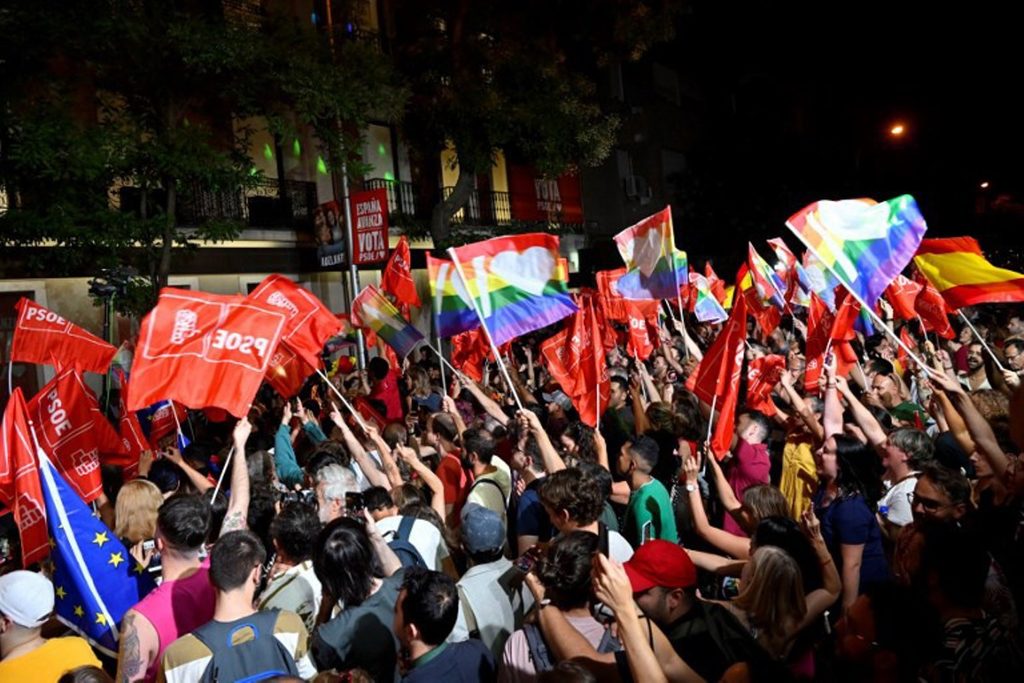After all votes have been counted in the Spanish snap elections on Sunday, the outcome defied the opinion polls. Predicted as the loser of the general election by all the polls, Socialist Prime Minister Pedro Sánchez managed to limit the gains made by the right-wing opposition.
While both blocs claimed victory, none of them can easily form a majority government. But against all the odds, Sánchez has a chance of staying in power thanks to the interplay of alliances.
The opposition party, the conservative centre-right Popular Party (PP) under Alberto Núñez Feijóo, became as expected the biggest party with 33.1 % (+ 12.3) of the votes and 136 seats of the 350 seats in the lower house of the parliament (Congress of Deputies).
The centre-left Socialist Workers' Party (PSOE), under the current Prime Minister Pedro Sánchez, was surprisingly successful in the elections and finished just behind PP, with 31.7 % (+ 3.7) of the votes and 122 of the seats. PSOE benefited from the relatively high voter turnout which reached 70.4 % (+4.1) despite that the elections took place during the vacation period with Spain hit by a heatwave.
Another explanation is the voting in Catalonia. Nathan Shachar, an expert on Spanish politics, wrote in Swedish newspaper Dagens Nyheter that "some hundred thousand Catalonian separatists abstained from voting for their own parties and backed PSOE" to prevent the right-wing parties from taking power in Madrid and decide on curbing regional autonomy.
As predicted before the elections, PP cannot form a majority government alone but nor can it reach a majority in a coalition with the far-right VOX party, which received only 12,4 % (-2,7) of the votes and 33 seats. The two parties have no other coalition partners and the other parties would probably vote against them if they tried to form a minority government.

Credit: Belga
If this turns out to be the case, Vox will not enter any government as the first far-right party to govern since Spain was a dictatorship ruled by Franco, against all speculations before the elections.
"PP and Vox are expected to face difficulties in finding additional supporters among the smaller parties as many are reluctant to let in the government a far-right group,” Elena Sánchez Nocolás, a Brussels-based correspondent, told The Brussels Times.
Related News
- Elections in Spain with uncertain outcome and impact on EU-Presidency
- Belgium third most expensive European country for rail travel
“On the other hand, Sánchez and Sumar leader Yolanda Díaz might attempt once more to create what has been dubbed as the ‘Frankenstein government’. However, the support of Catalan pro-independence parties will be key for forming a coalition government led by Sánchez socialists and this might complicate matters"
The left-wing alliance Sumar (formerly Podemos) received 12.3 % (-3.0) of the votes and 31 seats. Together PP and Sumar received 153 seats which falls far short of a majority in the parliament. Pedro Sánchez can still form a majority government if he will get the support of the regional parties in Basque and Catalonia. Coalition negotiations will take time and require concessions by Sánchez.
M. Apelblat
The Brussels Times

